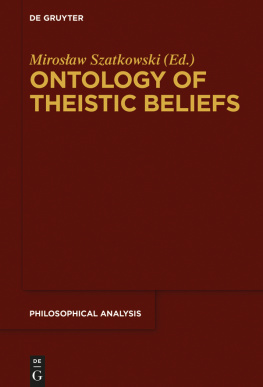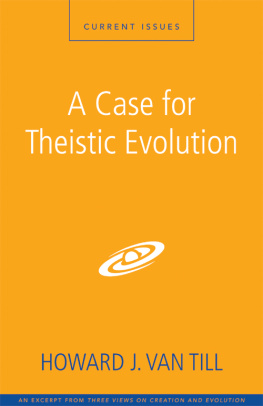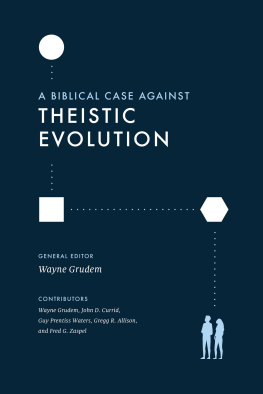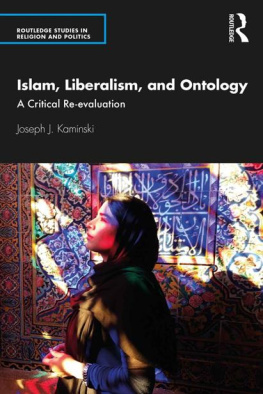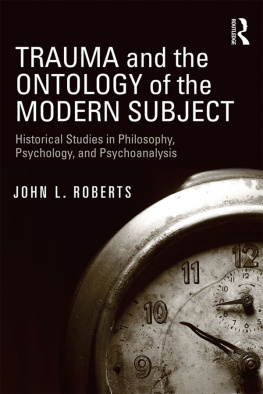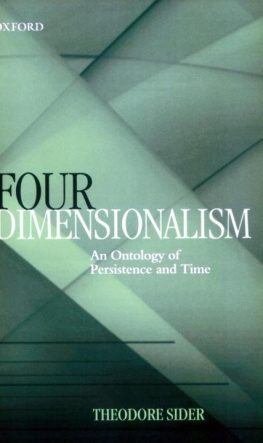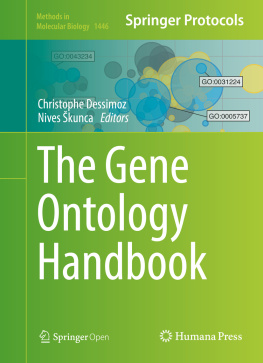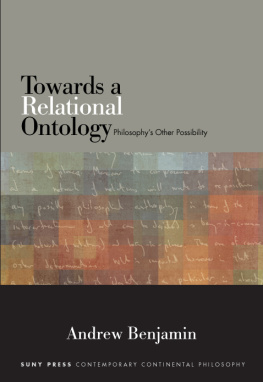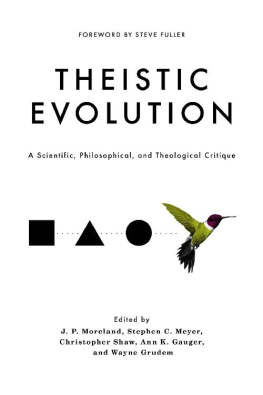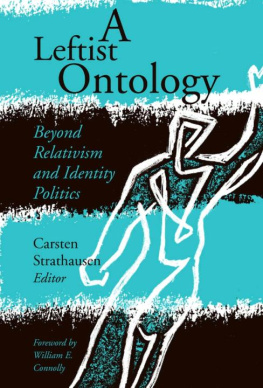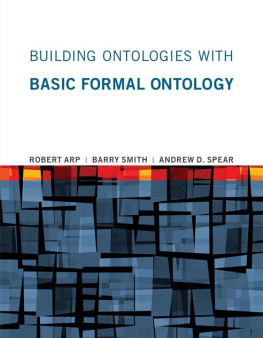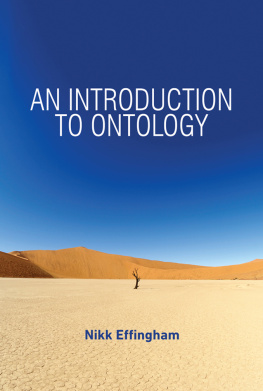Szatkowski - Ontology of Theistic Beliefs
Here you can read online Szatkowski - Ontology of Theistic Beliefs full text of the book (entire story) in english for free. Download pdf and epub, get meaning, cover and reviews about this ebook. year: 2018, publisher: De Gruyter, genre: Science. Description of the work, (preface) as well as reviews are available. Best literature library LitArk.com created for fans of good reading and offers a wide selection of genres:
Romance novel
Science fiction
Adventure
Detective
Science
History
Home and family
Prose
Art
Politics
Computer
Non-fiction
Religion
Business
Children
Humor
Choose a favorite category and find really read worthwhile books. Enjoy immersion in the world of imagination, feel the emotions of the characters or learn something new for yourself, make an fascinating discovery.
- Book:Ontology of Theistic Beliefs
- Author:
- Publisher:De Gruyter
- Genre:
- Year:2018
- Rating:4 / 5
- Favourites:Add to favourites
- Your mark:
- 80
- 1
- 2
- 3
- 4
- 5
Ontology of Theistic Beliefs: summary, description and annotation
We offer to read an annotation, description, summary or preface (depends on what the author of the book "Ontology of Theistic Beliefs" wrote himself). If you haven't found the necessary information about the book — write in the comments, we will try to find it.
Ontology of Theistic Beliefs — read online for free the complete book (whole text) full work
Below is the text of the book, divided by pages. System saving the place of the last page read, allows you to conveniently read the book "Ontology of Theistic Beliefs" online for free, without having to search again every time where you left off. Put a bookmark, and you can go to the page where you finished reading at any time.
Font size:
Interval:
Bookmark:

Ontology of Theistic Beliefs
Philosophische Analyse/Philosophical Analysis

Herausgegeben von/Edited by
Katherine Dormandy, Rafael Hntelmann,
Christian Kanzian, Uwe Meixner, Richard Schantz,
Erwin Tegtmeier
Band/Volume 74
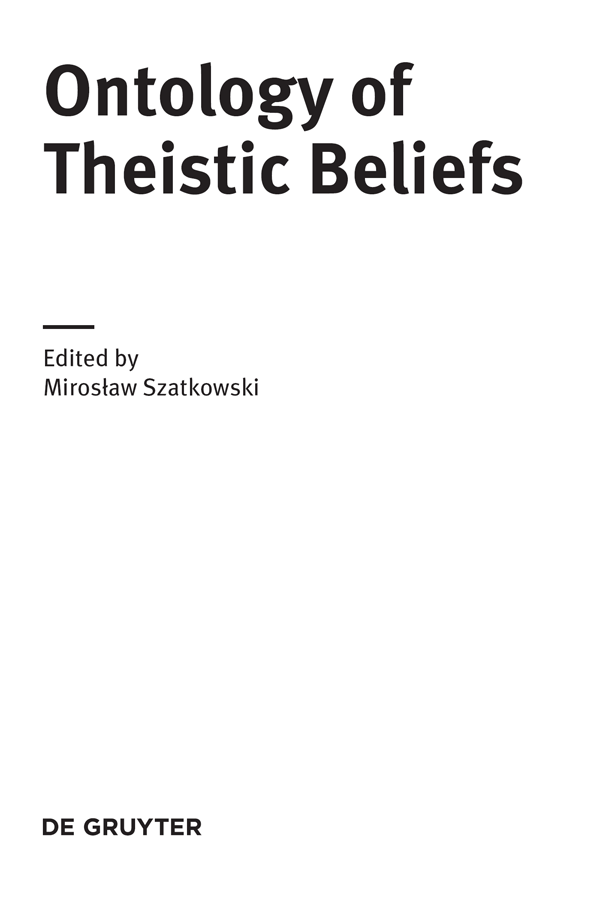
ISBN 978-3-11-056579-9
e-ISBN (PDF) 978-3-11-056651-2
e-ISBN (EPUB) 978-3-11-056589-8
ISSN 2198-2066
Library of Congress Control Number: 2018948484.
Bibliographic information published by the Deutsche Nationalbibliothek
The Deutsche Nationalbibliothek lists this publication in the Deutsche Nationalbibliografie; detailed bibliographic data are available on the Internet at http://dnb.dnb.de.
2018 Walter de Gruyter GmbH, Berlin/Boston
www.degruyter.com
This volume could not have been realized without contributions from individuals and institutions which, in many ways, accompanied this effort.
First and foremost, I would like to thank heartily all the authors who accepted the invitation to contribute to the volume and showed great understanding and patience during the publication process.
I would like to thank the anonymous reviewers for their suggestions and comments. Following their recommendations, authors included several improvements in their texts.
Special thanks are due to the National Science Center for the financial support of the publication of this book, within the research grant OPUS 4, DEC-2012/07/B/HS1/01978.
I would like to acknowledge the Institute of Philosophy and Sociology at the Polish Academy of Sciences (IFiS PAN), for implementing the above research project.
Finally, special thanks are also due to Dr. Bartomiej Skowron for his faithful support of my initiatives, and Mr. Sawomir Szatkowski for his help in preparing this volume for print. I have tried to make the best possible use of all his suggestions and corrections.
Mirosaw Szatkowski
Mirosaw Szatkowski
This article is intended as preparation for the relatively challenging reading of this book, in which 12 collected essays are loosely grouped around the theme of an ontology of theistic beliefs . First, the terms ontology and theistic beliefs, as well as the interaction between them, require some explanation. We begin by discussing the meaning of belief, and then discuss the difference between theistic and non-theistic beliefs.
It is difficult to define ontology. On the one hand, it is a discipline with a long history, but on the other hand, there is no common, widely accepted, definition of the term ontology. The term remained, until recently, one dealt with by philosophers, but in the second half of the 20 th century found use also in computer science, where an ontology is referred to as a special kind of information object or computational artifact (see, Gruber (1993a,b), Guarino and Giaretta (1995), and Guarino et al . (2009)). Following M. Obitko, here we categorize the definitions of ontology into four kinds (Obitko (2001), pp. 45):
| (i). | Ontology is a term in philosophy and its meaning is theory of existence. |
| (ii). | Ontology is an explicit specification of conceptualization. |
| (iii). | Ontology is a theory of vocabulary or concepts used for building artificial systems. |
| (iv). | Ontology is a body of knowledge describing some domain, typically a common sense knowledge domain. |
After a brief discussion of (ii) - (iv), we will devote more attention to (i).
Definition (ii) comes from Gruber (1993b). Its exact meaning depends on the meaning of the terms specification and conceptualization. So, following Genesereth and Nilsson (1987), Gruber defines conceptualization as an extensional relational structure, built from a set of entities of a certain area of interest (for example, of objects, concepts, or other entities) and a set of relationships between them. Conceptualization, defined in this way, is an abstract, simplified view of the world that we wish to represent for some purpose (Gruber (1993b), p. 199). In turn, the specification of a conceptualization are the characteristics of the category, relations, functions, and (possibly) other items occurring in this conceptualization.
Definition (iii), ontology as vocabulary, can be found in Chandrasekaran et al . (1999) and Mizoguchi and Ikeda (1996). More precisely, in the words of B. Chandrasekaran and others:
[It] is not the vocabulary as such that qualifies as an ontology, but the conceptualizations that the terms in the vocabulary are intended to capture. Thus, translating the terms in an ontology from one language to another, for example from English to French, does not change the ontology conceptually...... In other words, the representation vocabulary provides a set of terms with which to describe the facts in some domain, while the body of knowledge using that vocabulary is a collection of facts about a domain. However, this distinction is not as clear as it might first appear. (Chandrasekaran et al . (1999), pp. 2021)
R. Mizoguchi and M. Ikeda do not give a precise definition of an ontology, but they analyze the depth of the ontology used in eight levels followed by a discussion on what concrete advantages ontology has for real-world problem solving.
In the case (iv), an ontology is not only the vocabulary, but the whole knowledge base the vocabulary is used to describe this knowledge base. This approach recognizes an ontology as an inner body of knowledge, and not as the way to describe the knowledge. The typical example of this definition usage is project CYC (see, Whitten (1997)). CYC is the name of a very large, multi-contextual knowledge base and inference engine, in which knowledge is represented declaratively in the form of logical assertions. That means CYC contains simple statements of fact and rules of two kinds: (i). about what conclusions to draw if certain statements of fact are satisfied (true), and (ii). about how to reason with certain types of facts and rules. Conclusions are derived by the inference engine using deductive reasoning. CYCs common sense knowledge can be used as the body of a knowledge base for any knowledge intensive system. In this sense, this body of knowledge can be viewed as an ontology of the knowledge base of the system (cf., Obitko (2001), pp. 78).
And finally, in case (i), ontology is listed as a part of the major branch of philosophy known as metaphysics. But both these philosophical terms: ontology and metaphysics have hundreds of different systems so there is no single ontology or metaphysics, but many systems in competition. Discrepancies concerning philosophical ontology occur, according to Garbacz and Trypuz (2012), on (at least) three levels: ontological, meta-ontological, and meta-meta-ontological. It is impossible to describe here this extraordinarily rich ontological pluralism to give an example, we list just three contemporary dictionary definitions of ontology. E. J. Lowe states,
Ontology, understood as a branch of metaphysics, is the science of being in general, embracing such issues as the nature of existence and the categorial structure of reality.... The term ontology has some additional special uses in philosophy. In a derivative sense, it is used to refer to the set of things whose existence is acknowledged by a particular theory or system of thought: it is in this sense that one speaks of the ontology of a theory, or of a metaphysical system as having such-and-such an ontology (for example, an ontology of events, or of material substances). In a separate, technical sense the term ontology is the official name of a logistical system created by the Polish logician Stanistaw Lesniewski a system similar in scope to modern predicate logic and developed by him in conjunction with mereology, the formal theory of part-whole relations. (Lowe (1995), p. 634)
Font size:
Interval:
Bookmark:
Similar books «Ontology of Theistic Beliefs»
Look at similar books to Ontology of Theistic Beliefs. We have selected literature similar in name and meaning in the hope of providing readers with more options to find new, interesting, not yet read works.
Discussion, reviews of the book Ontology of Theistic Beliefs and just readers' own opinions. Leave your comments, write what you think about the work, its meaning or the main characters. Specify what exactly you liked and what you didn't like, and why you think so.

